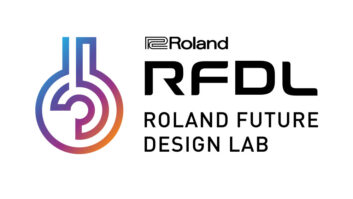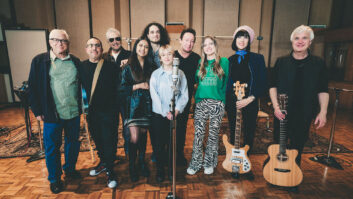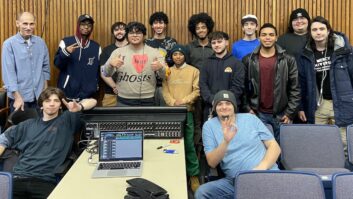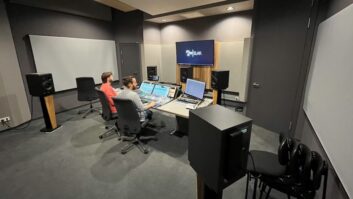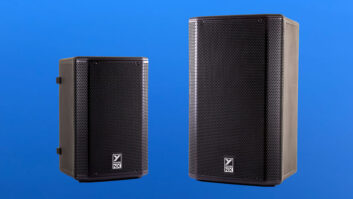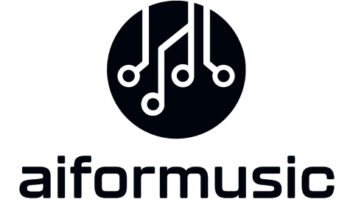
Chicago, IL (July 29, 2020)—Since establishing a studio in his home’s garage, Enviyon Entertainment owner Romel Williams—better known simply as Will—has been sensible about building his business, only upgrading his gear and expanding his facilities as his finances have allowed. It’s been a long road, but Williams is now celebrating a decade in business with the recent addition of a podcasting studio and the introduction of Enception, a latency- beating remote recording service.
With a long history as a musician dating back to high school, Williams started out making beats in the living room of his house in Country Club Hills, a southern suburb of the Chicago metropolitan area. “It wasn’t a lot of equipment—just a MIDI keyboard, a laptop and an interface,” he said. But he moved out to the garage once he started a family because his young daughter liked to mess around with the controls.
“In the summertime, I would open the door because it would be hot in there. People from the neighborhood would walk by and ask, ‘Hey, is this a studio?’ And I’d say, ‘I guess it is!’ So it all started by accident.”
Before taking on any clients, Williams worked on his production chops. “I wasn’t so much into engineering yet because I didn’t have anybody to record, so I would practice on my own vocals,” he said.
Not only are Chicago summers very hot but winters are very cold, so as his recording clientele expanded, he decided to get out of the garage and find a commercial space. “But I knew the equipment I had would not be sufficient. People wouldn’t want to come into a commercial studio and see an old-school Mbox 1 and a laptop and be charged whatever I would have to charge because of the overhead that I had,” said Williams, who was still holding down a day job at the time.
“While I was in the first rental space, in 2012, I would buy a piece of equipment with every paycheck. I’d get a check and buy a mixer; get another paycheck and buy a mic. It took me a whole year. For that year, I paid rent, electricity, gas and insurance because I didn’t have enough equipment to open the studio. It was a long struggle, but when you have a vision, you just keep doing it—even though they tell you that you’re crazy.”

The commercial space, a former dental office at the end of a row of storefronts in a local strip mall, needed remodeling to work as a studio. Looking back, he said, “I didn’t realize how important construction was. You’ve got to soundproof everything.”
Fortunately, Williams is good with his hands and was able to do much of the work himself, including building studio furniture and a novel dual-computer display for his DAW. “I built it in 2013,” he recalls, before he was even aware of the Slate Raven, which it resembles. “I didn’t even realize there was a system like that,” he said. “I’m very handy so I just took some wood and made it, and it’s been that way ever since.”
The original room, Studio A, was a success, and Williams soon found himself needing to expand. “The store next door was a clothing store, and the one next to that, they did some dance exercise, and the fourth store was a hair salon. When the opportunities arose, I would take the space. I grew from one to the next and ended up obtaining all four storefronts.”
Many of Enviyon’s clients are from the worlds of hip-hop and dance music, and over the years have come to include the likes of 147 Callboy, DramaGirl, DJ Casper, G-Herbo, Queen Key and the late Juice WRLD. But while those productions typically involve a lot of collaboration in the control room, Williams designed his next room, Studio B, in the second storefront, for versatility. The room offers several iso booths to accommodate live tracking of musicians and vocalists.
“We’re running everything through an Apollo 8XP interface,” he said of the B room. “I have a 48-channel Mackie board in there as well, but I really like the clean sound of the 8XP.”

By the time Enviyon had expanded into the fourth storefront, Williams and his staff had a different plan for Studio D, too. “When we built Studio D, we had a lot of different ideas on how we wanted it to be. I didn’t want a conventional studio; I wanted it to do more than one thing.”
As a result, Williams has added a podcast studio in Studio D, outfitted with Shure SM7B mics, that enables artists to move straight into marketing mode at the end of their project. “As soon as they’re done, they can go over to the podcast area to be interviewed,” Williams offers as an example. “We can do a livestream from there or record the audio professionally.”
The entire facility operates on Pro Tools, he added. “If I’m not available, it’s easy for another engineer to access a recording session from another studio using the network and pick up where we left off.”
With fortuitous timing, Williams introduced Enception just as the COVID-19 lockdown began. The new service flips the script on typical remote recording workflows and offers additional growth potential for the business. Devised in collaboration with several developers and similar to commercially available remote access and support software, Enception enables the Enviyon engineer to take control of the artist’s home workstation. “The artist doesn’t hear any latency because the recording is at their end,” he said. “There’s maybe a second of latency at the engineer’s end, but that’s fine. Then we can either mix it live or mix it at the studio and send them a copy.”
Most importantly, the service gives the client real-time feedback. “That’s what people want,” said Williams. “People still want to come to the studio if they can, but this is a great idea for those who can’t, or who are out of state or are overseas. That’s who we’re targeting with this program.”
Enviyon Entertainment • https://www.enviyon.com/
